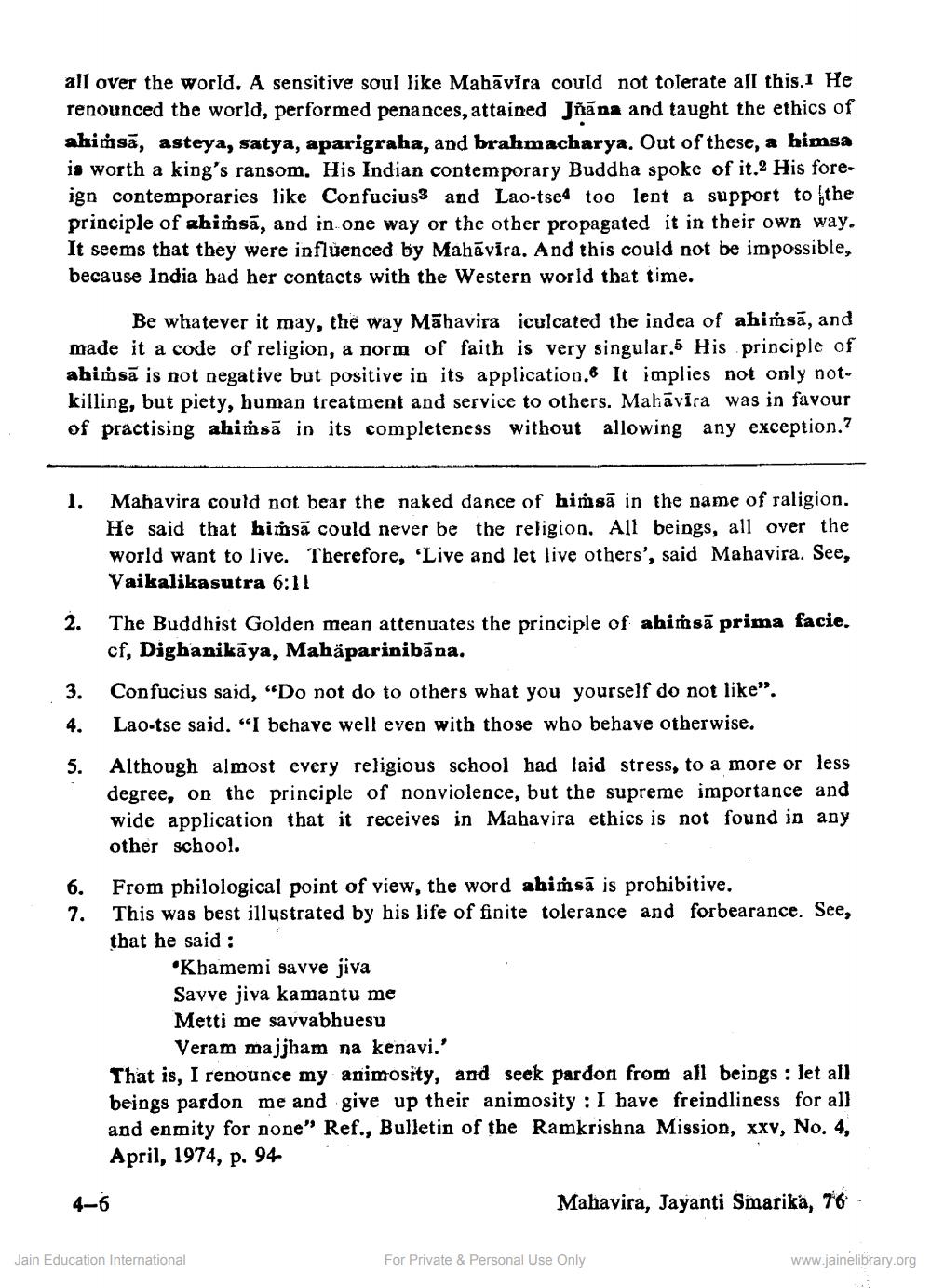________________
all over the world. A sensitive soul like Mahavira could not tolerate all this.1 He renounced the world, performed penances, attained Jñana and taught the ethics of ahiṁsā, asteya, satya, aparigraha, and brahmacharya, Out of these, a himsa is worth a king's ransom. His Indian contemporary Buddha spoke of it." His foreign contemporaries like Confucius and Lao-tsed too lent a support to the principle of ahimsa, and in one way or the other propagated it in their own way. It seems that they were influenced by Mahavira. And this could not be impossible, because India had her contacts with the Western world that time.
Be whatever it may, the way Mahavira iculcated the indea of ahimsa, and made it a code of religion, a norm of faith is very singular.5 His principle of ahimsa is not negative but positive in its application. It implies not only notkilling, but piety, human treatment and service to others. Mahavira was in favour of practising ahimsa in its completeness without allowing any exception.7
1.
2. The Buddhist Golden mean attenuates the principle of ahimsā prima facie. cf, Dighanikaya, Mahäparinibāna.
3.
4.
Mahavira could not bear the naked dance of himsa in the name of raligion. He said that himsa could never be the religion. All beings, all over the world want to live. Therefore, 'Live and let live others', said Mahavira. See, Vaikalikasutra 6:11
5.
Confucius said, "Do not do to others what you yourself do not like". Lao-tse said. "I behave well even with those who behave otherwise.
Although almost every religious school had laid stress, to a more or less degree, on the principle of nonviolence, but the supreme importance and wide application that it receives in Mahavira ethics is not found in any other school.
6. From philological point of view, the word ahimsa is prohibitive.
7.
This was best illustrated by his life of finite tolerance and forbearance. See, that he said:
Khamemi savve jiva
Savve jiva kamantu me
Metti me savvabhuesu
Veram majjham na kenavi."
That is, I renounce my animosity, and seek pardon from all beings: let all beings pardon me and give up their animosity: I have freindliness for all and enmity for none" Ref., Bulletin of the Ramkrishna Mission, xxv, No. 4, April, 1974, p. 94
4-6
Jain Education International
Mahavira, Jayanti Smarika, 76
For Private & Personal Use Only
www.jainelibrary.org




